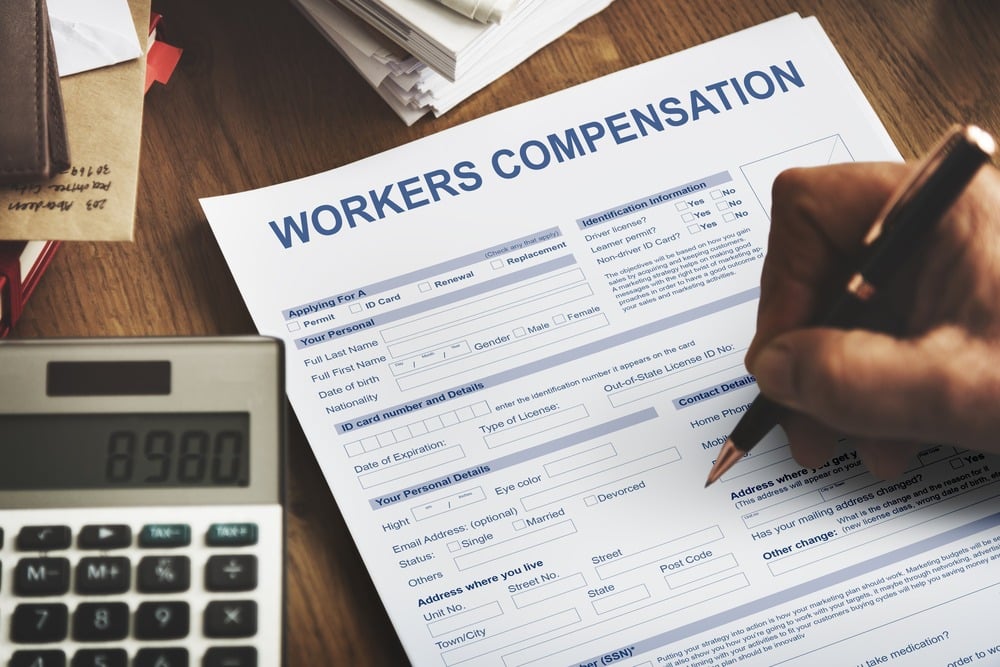Can an Employer Deny a Workers' Compensation Claim?
In this article, we will explore the reasons behind the denial of workers' compensation claims and shed light on whether an employer can deny such claims.

Workers' compensation insurance plays a crucial role in safeguarding employees in the event of work-related injuries or illnesses. It is a system designed to provide medical benefits, wage replacement, and other necessary support to workers who suffer harm while performing their job duties. However, there are instances where workers' compensation claims are denied by employers or their insurance companies.
Workers' compensation insurance, also known as workers' comp insurance, is a specialized insurance policy purchased by employers. Its purpose is to protect both employees and employers in the event of workplace injuries or occupational illnesses. Workers' compensation insurance ensures that employees receive necessary medical treatment, wage replacement, and other benefits, while employers are shielded from potential lawsuits related to workplace accidents.
Understanding Workers' Compensation Claims
When an employee suffers an injury or illness related to their work, they have the right to file a workers' compensation claim. This claim serves as a formal request for the benefits provided by workers compensation insurance. Employees are typically required to report the incident to their employer within a specific timeframe and provide relevant medical documentation to support their claim.
Reasons for Denial of Workers' Compensation Claims
While workers' compensation is intended to be a safety net for employees, there are situations where claims may be denied. Some common reasons for denial include:
- Failure to report the injury or illness within the specified timeframe.
- Lack of evidence linking the condition to work-related activities.
- Pre-existing medical conditions that contributed to the injury or illness.
- Injuries caused by activities outside the scope of employment.
- Violation of company policies or engaging in misconduct at the time of the incident.
- Insufficient medical documentation or incomplete claim forms.
- Disputes over the severity of the injury and the need for specific medical treatment.
Can an Employer Deny a Workers' Compensation Claim?
While employers have the right to contest workers' compensation claims, they cannot arbitrarily deny valid claims. Denying a claim without proper justification can expose employers to legal consequences. However, employers may challenge claims if they have evidence to suggest the injury or illness did not occur in the workplace, the employee was not eligible for coverage, or if there is a dispute regarding the extent of the injury and the related benefits.
Legal Requirements for Workers' Compensation
In most jurisdictions, employers are legally obligated to provide workers insurance coverage for their employees. This legal requirement ensures that employees are protected in case of work-related injuries or illnesses. Employers must adhere to specific regulations and guidelines concerning the provision of workers' compensation benefits.
Steps to Take if Your Claim is Denied
If your workers' compensation claim is denied, it is important to take appropriate steps to protect your rights. Here are some recommended actions:
- Understand the reason for the denial: Review the denial letter and understand the specific grounds on which your claim was rejected.
- Gather additional evidence: If your workers' compensation claim is denied, it is important to take appropriate steps to protect your rights. Here are some recommended actions:
- Understand the reason for the denial: Review the denial letter and understand the specific grounds on which your claim was rejected.
- Gather additional evidence: If you believe your claim is valid, collect any additional evidence that supports your case. This may include medical records, witness statements, or any other documentation that can demonstrate the connection between your injury or illness and your work.
- Consult with an attorney: Seeking legal advice from an experienced workers' compensation attorney can help you navigate the complex process of appealing a denied claim. They can assess the strength of your case, guide you through the appeals process, and represent your interests.
- File an appeal: Follow the guidelines provided by your state's workers' compensation board or commission to formally appeal the denial. This typically involves submitting a written request for a hearing and presenting your case before an administrative law judge.
- Prepare for the hearing: Work closely with your attorney to gather all relevant evidence, organize your arguments, and prepare for the hearing. This may involve gathering expert opinions, medical reports, and other supporting documents.
- Present your case: During the hearing, you will have the opportunity to present your evidence, testify, and provide any additional information that strengthens your claim. Your attorney will help you navigate the legal proceedings and advocate on your behalf.
- Await the decision: After the hearing, the administrative law judge will review the evidence and make a decision regarding your claim. They will consider the arguments presented by both parties and determine whether the denial should be overturned or upheld.
- Explore settlement options: In some cases, employers or their insurance companies may be open to settling the claim outside of court. This involves negotiating a mutually agreeable resolution that provides you with the compensation and benefits you deserve.
- Continue seeking medical treatment: Regardless of the outcome of your claim, it is important to continue seeking necessary medical treatment for your injury or illness. Follow your healthcare provider's recommendations and keep detailed records of all medical expenses related to your condition.
Role of Workers' Compensation Insurance Companies
Worker comp insurance companies play a significant role in the claims process. They are responsible for assessing the validity of claims, determining the extent of benefits, and processing payments. Insurance companies employ claims adjusters who review the details of each claim and make decisions based on the provided evidence. These companies are regulated by state laws and must adhere to specific guidelines regarding the handling of workers' compensation claims.
Tips for Filing a Successful Workers' Compensation Claim
To improve your chances of a successful workers' compensation claim, consider the following tips:
- Report the incident promptly: Notify your employer as soon as possible after the injury or illness occurs. Delayed reporting may raise questions about the validity of your claim.
- Seek medical attention: Visit a healthcare provider promptly and follow their recommended treatment plan. Obtain thorough medical documentation to support your claim.
- Keep detailed records: Maintain a file with all relevant documents, including medical records, incident reports, correspondence with your employer or insurance company, and any other evidence related to your claim.
- Follow the proper procedures: Familiarize yourself with the specific requirements and deadlines for filing a workers' compensation claim in your jurisdiction. Adhere to these guidelines to ensure your claim is processed in a timely manner.
- Consult with an attorney: While not mandatory, consulting with a workers' compensation attorney can provide valuable guidance throughout the claims process. They can help you understand your rights, navigate any challenges, and advocate for your best interests.
Common Challenges Faced by Workers
Workers may encounter several challenges when filing workers' compensation claims. These challenges include:
- Lack of awareness: Many workers may not be fully aware of their rights and the workers' compensation process. This can result in delays or missed opportunities to file a claim.
Employer resistance: Some employers may discourage or intimidate employees from filing workers' compensation claims. They may provide misinformation or create a hostile environment, making it difficult for workers to assert their rights.
Complex paperwork: The paperwork involved in filing a workers' compensation claim can be overwhelming and confusing. Employees may struggle to understand the forms and requirements, leading to errors or incomplete submissions.
Medical disputes: Insurance companies may dispute the severity or causation of an injury or illness. They may request additional medical examinations or seek alternative medical opinions to challenge the validity of the claim.
Lengthy claims process: Workers' compensation claims can take time to resolve. The administrative procedures, investigations, and appeals can prolong the process, causing financial strain and frustration for the injured worker.
The Importance of Seeking Legal Representation
Navigating the workers' compensation system can be complex and challenging. Seeking legal representation can significantly enhance your chances of a successful outcome. An experienced workers' compensation attorney can:
Provide legal expertise: Attorneys specializing in workers' compensation understand the intricacies of the law and can guide you through the entire process. They have the knowledge and experience to build a strong case and protect your rights.
Advocate for your best interests: An attorney will act as your advocate, representing your interests in negotiations, hearings, and appeals. They will ensure that your voice is heard and that you receive fair compensation for your injuries or illnesses.
Handle paperwork and documentation: Lawyers will assist you in completing the necessary paperwork accurately and on time. They will compile all relevant medical records, incident reports, and other evidence to strengthen your claim.
Navigate the appeals process: If your claim is denied or disputed, an attorney can navigate the appeals process on your behalf. They will gather additional evidence, present persuasive arguments, and represent you in court, if necessary.
Workers' compensation insurance is designed to provide financial protection and support for employees who suffer work-related injuries or illnesses. While employers have the right to contest claims under certain circumstances, they cannot arbitrarily deny valid claims. Understanding the reasons for denial, following proper procedures, and seeking legal representation can help injured workers navigate the system and secure the benefits they are entitled to.
What's Your Reaction?






















.jpg)